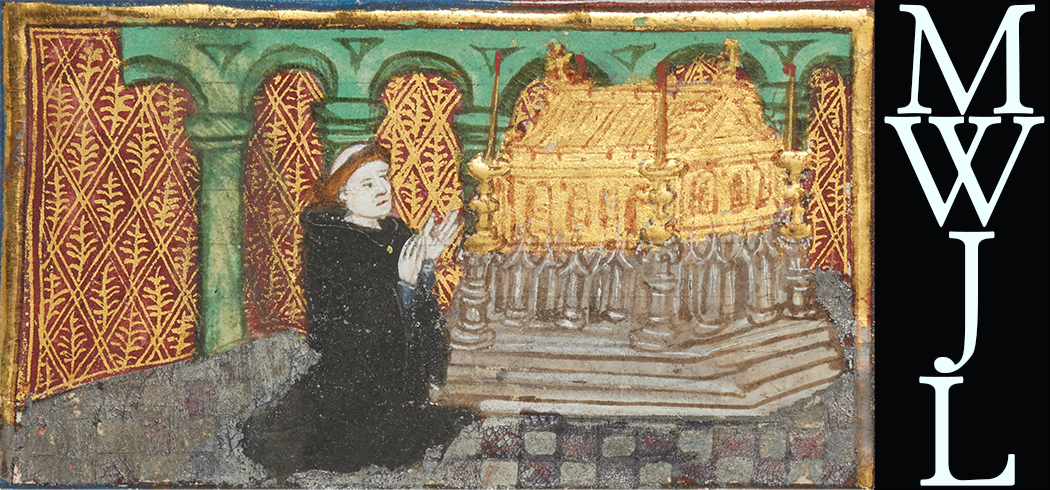 The Testament of John Lydgate:
British Library Harley 218 Verses
The Testament of John Lydgate:
British Library Harley 218 Verses
HomeAbout the ArchiveAbout John LydgateWorksManuscriptsAbout this ManuscriptEditorial ApparatusContactVisualization

Folio 59 Recto
Compare Witnesses: •
Of gladnesse hath so gret a vauntage •
Ther to ful wel resemblytħ chyldes ages •
Quyk grene fressħ / and delyuer of corage •
For rygħt as ver / au moreth in grenesse •
So dotħ chyldhode / in amorous lustynesse •
Notes
-
The EETS edition has ".xiij." here, which does not fit the manuscript or the other witnesses. ↩
-
The EETS edition has "lust" here, which makes no sense with the manuscript. When compared with the initial "l" on the second line of the first stanza in f. 57 verso and the initial "i" in "In" on the sixth line of the second stanza of f. 58 verso it's clear it's "I," not "l." ↩
-
There is a mark through the "ce" of "convenience" at the end of the line, but when other witnesses and the rhyme scheme are considered it's obvious this mark is otiose. ↩
-
The rubricator only touched one half of the "w" glyph here. ↩








































